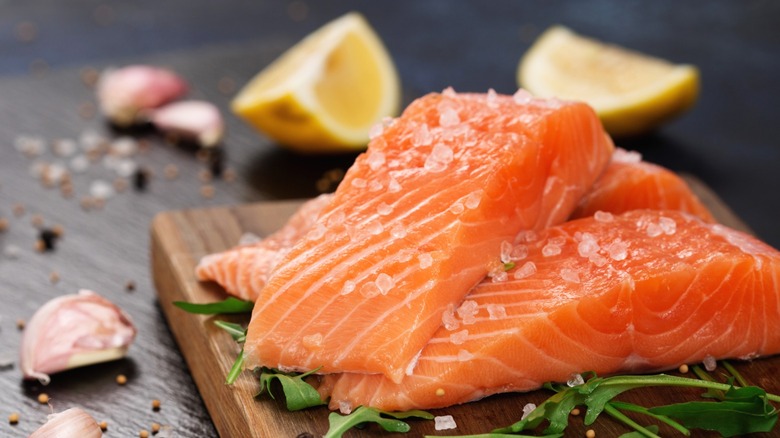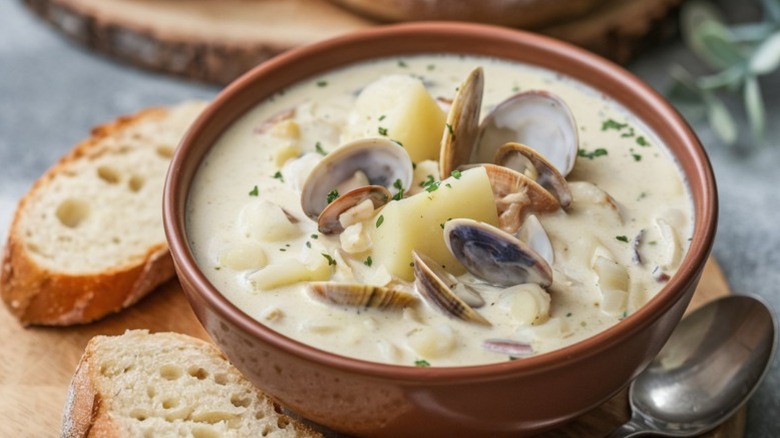This Is The Only Time You Should Ever Put Fish In A Slow Cooker
Anyone who's ever heated up fish in an office microwave (or, ahem, had a coworker do so) will tell you there's one major reason why you might want to avoid putting fish in your slow cooker. It's going to take more than a bit of Febreze to get the smell of cod out of your kitchen, and while that may be acceptable for some, we don't blame you if you'd rather not bother. There are other reasons you might want to avoid putting fish or other seafood in the slow cooker — with one or two exceptions. We spoke exclusively to Susan "Lazy Susan" Goldenberg, who is the owner, recipe tester, and blogger at The Lazy Slow Cooker, and she says that firm, fatty pieces of fish hold up to the slow cooking process quite well.
The trouble with slow cookers, Goldenberg explains, is that they just aren't well-suited to cooking meats without much fat. "Fish is often not considered appropriate for slow cookers because it cooks very quickly and has very little fat content," she notes. "Cooking fish too long will result in dry, rubbery fish." It's the same reason why you wouldn't cook a chicken cutlet or a London broil (which doesn't necessarily come from England) in your Crock-Pot. But as salmon is a fattier fish than most, it can withstand the long cook time of a slow cooker, turning out just as tasty as sashimi made from raw salmon or lox-inspired baked salmon. Other kinds of fatty fish, like mackerel or herring, could also withstand the process.
You can also make chowder, so long as you put in the seafood near the end
"I love making salmon in my slow cooker," says Susan Goldenberg said. praising what she called a poached-like consistency from the cooking process. "The slow cooking time gives the fish plenty of time to marinate in whatever sauce you prefer and yields a tender, flaky, and delicious finished product." Goldenberg also tells us that, in addition to salmon, you might also make chowder in your slow cooker — so long as you don't put the seafood in too early.
"In this case, fish or seafood should be stirred into the chowder for the last 45 to 60 minutes of cooking time," says Goldenberg, "just until they are cooked through." That means this wouldn't be a good idea for a set-it-and-forget-it weeknight meal, but it's a fine thing to do if you happen to be home. And, as Goldenberg also mentions, "The dish should then be served promptly to prevent further cooking or overcooking." So unlike beef stews or other braises, it's not something that will necessarily be better the next day.

